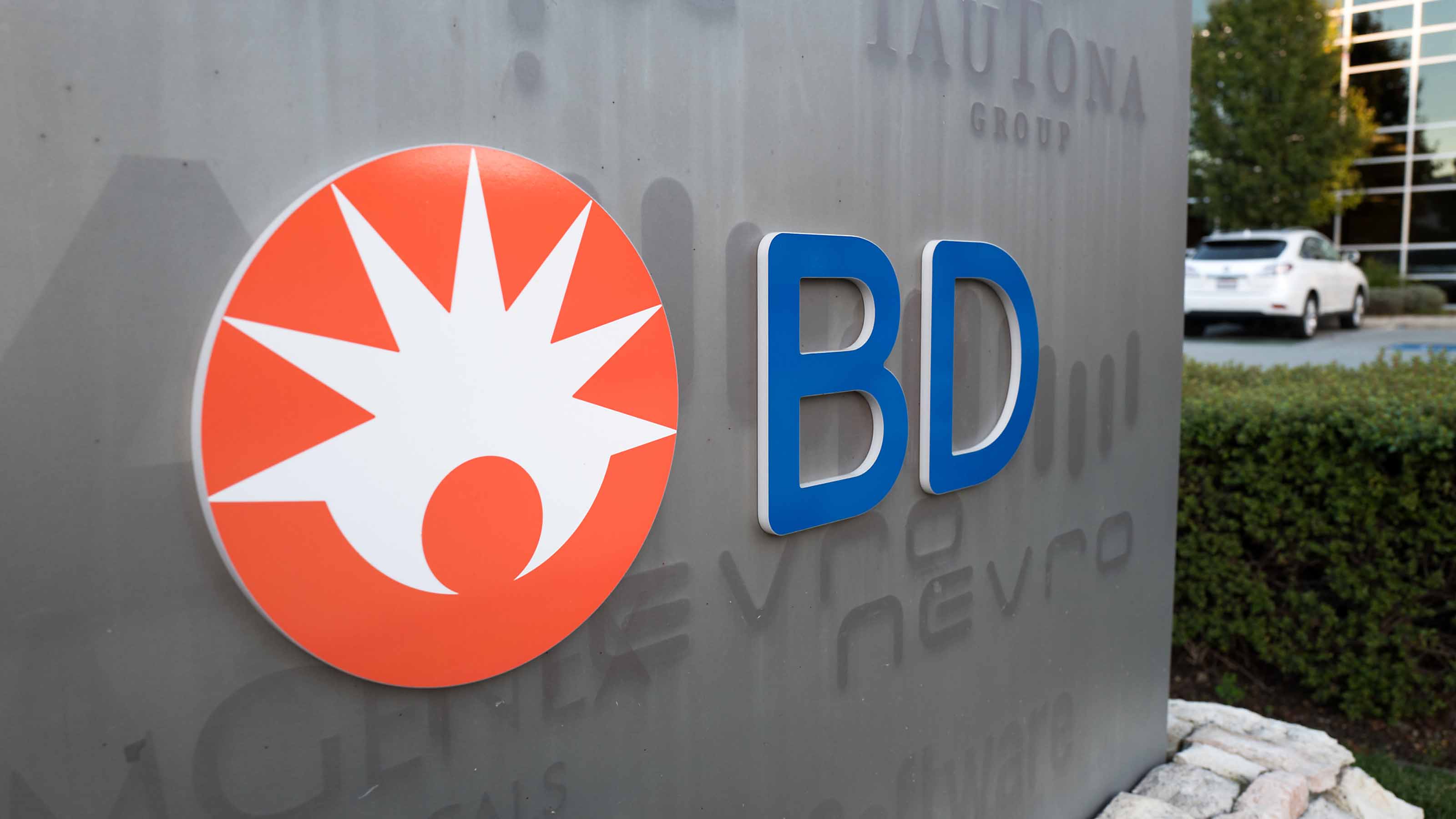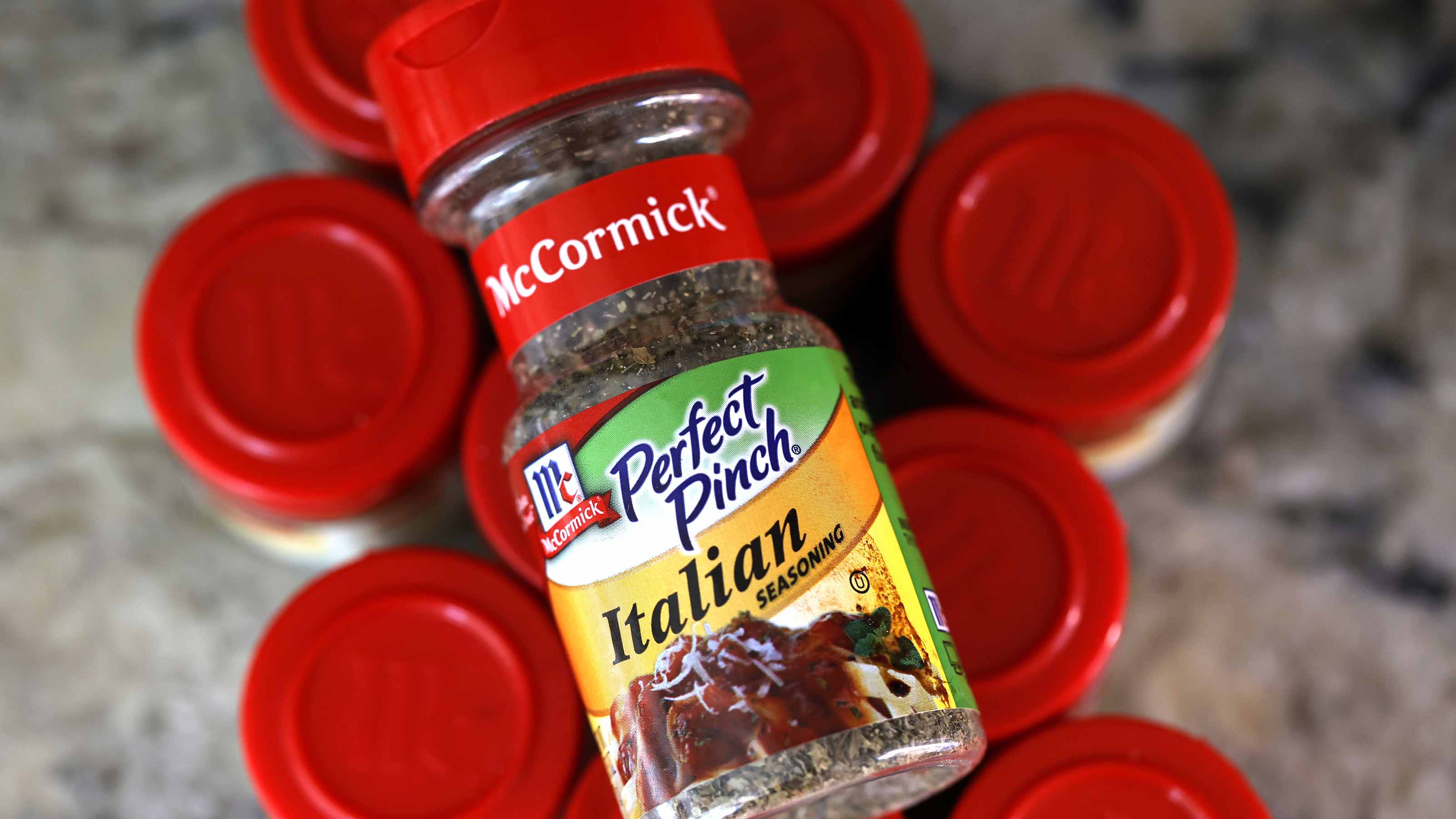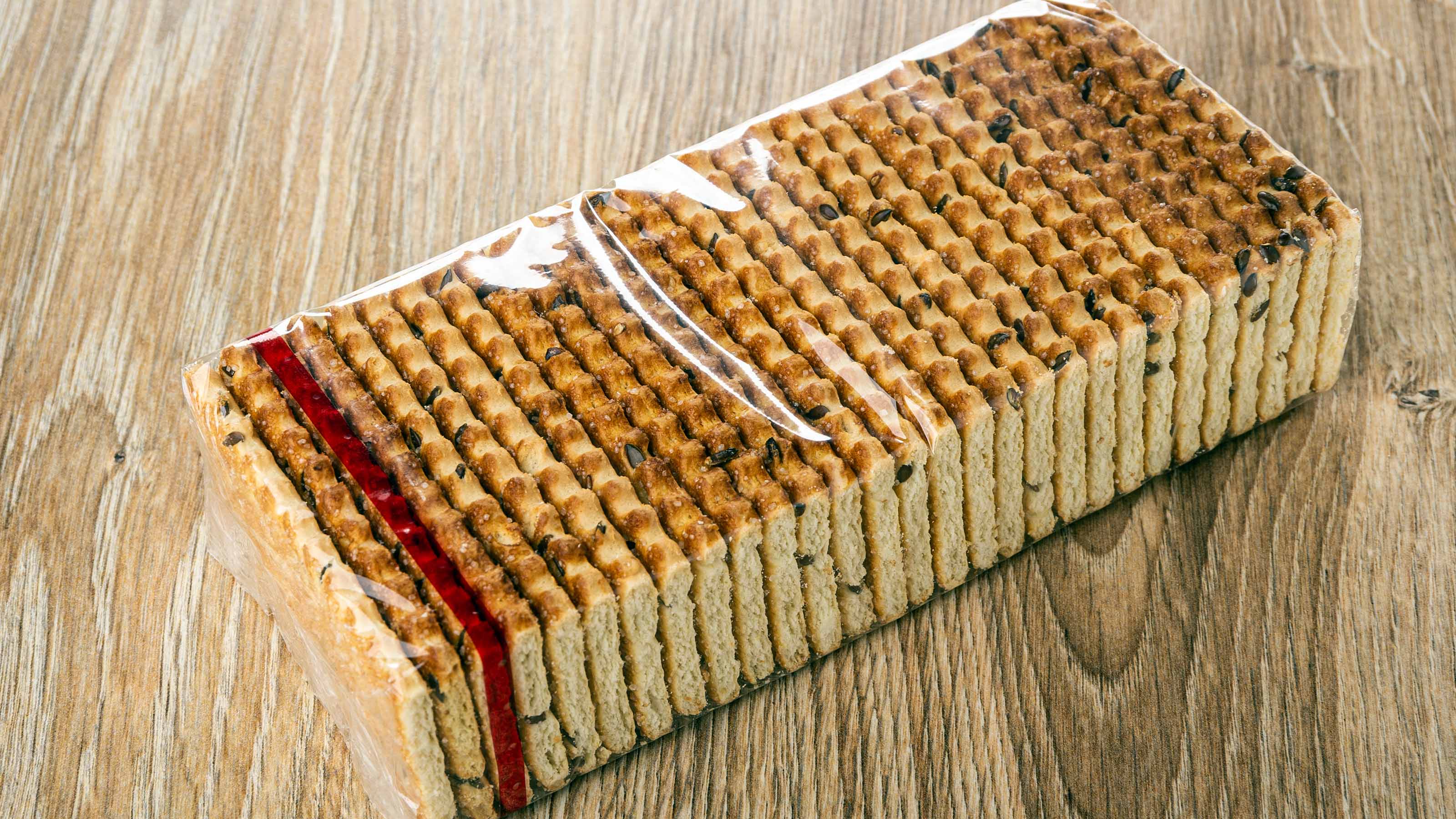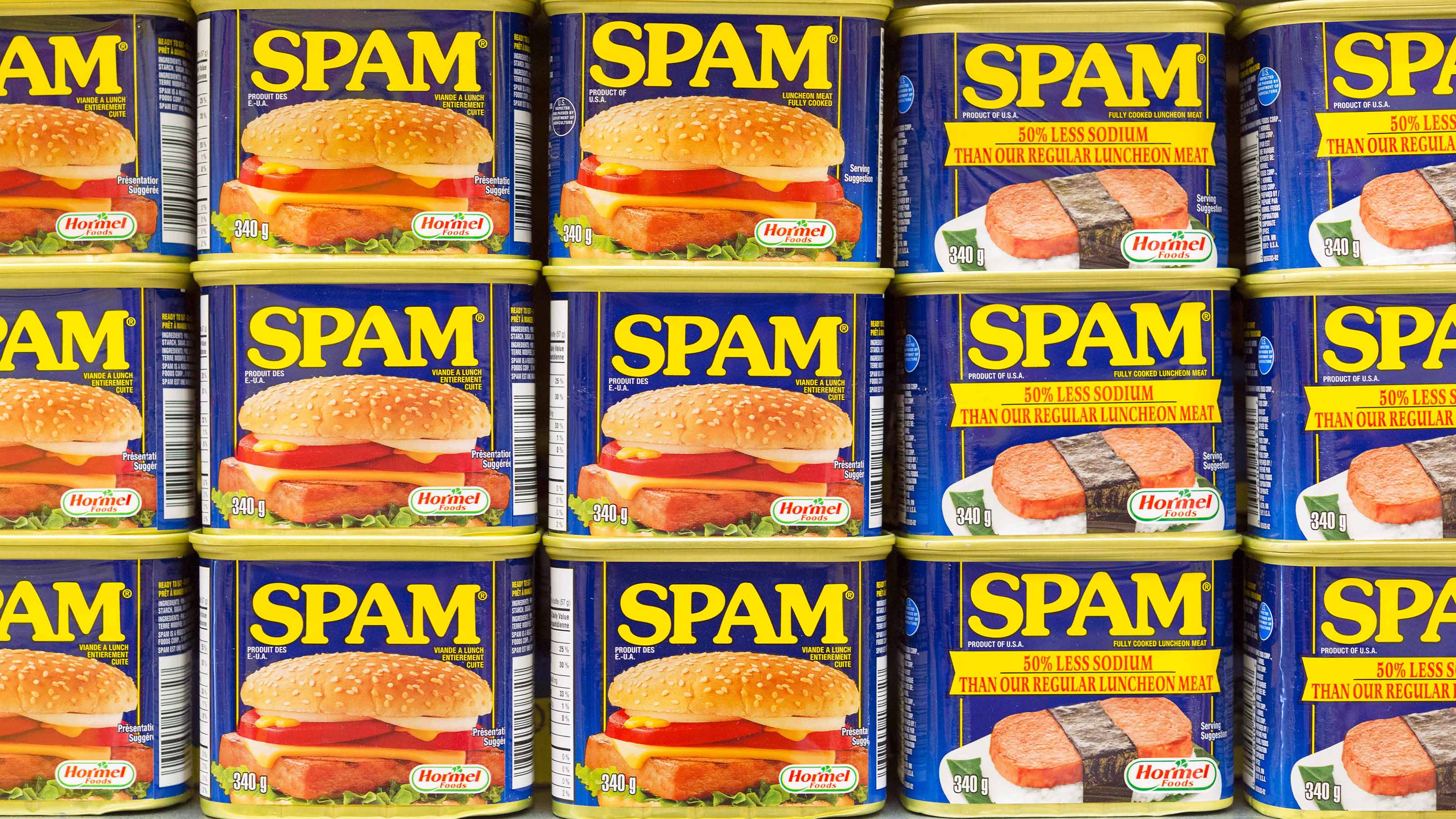5 Low-Vol Dividend Aristocrats to Survive a Stormy Market
The market has been volatile so far in 2022, but these safe dividend stocks could provide stability for investors.


Profit and prosper with the best of Kiplinger's advice on investing, taxes, retirement, personal finance and much more. Delivered daily. Enter your email in the box and click Sign Me Up.
You are now subscribed
Your newsletter sign-up was successful
Want to add more newsletters?

Delivered daily
Kiplinger Today
Profit and prosper with the best of Kiplinger's advice on investing, taxes, retirement, personal finance and much more delivered daily. Smart money moves start here.

Sent five days a week
Kiplinger A Step Ahead
Get practical help to make better financial decisions in your everyday life, from spending to savings on top deals.

Delivered daily
Kiplinger Closing Bell
Get today's biggest financial and investing headlines delivered to your inbox every day the U.S. stock market is open.

Sent twice a week
Kiplinger Adviser Intel
Financial pros across the country share best practices and fresh tactics to preserve and grow your wealth.

Delivered weekly
Kiplinger Tax Tips
Trim your federal and state tax bills with practical tax-planning and tax-cutting strategies.

Sent twice a week
Kiplinger Retirement Tips
Your twice-a-week guide to planning and enjoying a financially secure and richly rewarding retirement

Sent bimonthly.
Kiplinger Adviser Angle
Insights for advisers, wealth managers and other financial professionals.

Sent twice a week
Kiplinger Investing Weekly
Your twice-a-week roundup of promising stocks, funds, companies and industries you should consider, ones you should avoid, and why.

Sent weekly for six weeks
Kiplinger Invest for Retirement
Your step-by-step six-part series on how to invest for retirement, from devising a successful strategy to exactly which investments to choose.
Turmoil in the stock market has many investors looking for ways to manage risk. If your goal is safety and reliable income, a great starting point is the Dividend Aristocrats, a group of high-quality S&P 500 stocks known for delivering at least 25 straight years of dividend growth.
A dependable dividend can also have a significantly positive impact on stock performance since these payouts typically account for roughly one-third of total annual return, according to S&P Dow Jones Indices.
Equally as important, the increasing payouts from the Dividend Aristocrats have not come at the expense of an attractive yield. These stocks have consistently delivered, with yields averaging 2.5% over the past 24 years versus a 1.8% yield for the S&P 500.
The potent combination of consistency and rising dividends have helped the Dividend Aristocrats outperform the broader S&P 500 benchmarks over long periods with lower volatility.
One measure that captures the downside protection provided by these stocks is beta, which calculates an individual stock's volatility versus the overall market. Since 1990, the average beta for the Dividend Aristocrats has ranged around 0.8. Any beta below 1.0 indicates a stock that is less volatile than the S&P 500.
The calming effect of lower beta is most apparent during periods of stock market decline. Over the past 40 years, the Dividend Aristocrats have performed better than the S&P 500 69.3% of the time during market downturns and 43.4% of the time during market upticks.
Here, we look at five Dividend Aristocrats with betas below 1.0. Each of the safe dividend stocks featured here offer investors solid downside protection and provide an exceptional dose of stability with reliably rising income.
Data is as of March 15. Dividend yields are calculated by annualizing the most recent payout and dividing by the share price.

Becton Dickinson
- Market value: $73.7 billion
- Five-year beta: 0.66
- Dividend yield: 1.4%
Becton Dickinson (BDX, $258.69) is a global medical technology company that supplies hospitals and research labs with critical equipment, instruments and diagnostic test products. The company is an industry leader in essential healthcare categories that include infusion pumps, injectable drug delivery devices and dialysis access solutions. Approximately 90% of U.S. hospital patients are touched by a Becton Dickinson device and the company generates $20 billion in annual sales.
New products and acquisitions will be key drivers of BDX's future growth. Becton Dickinson plans to launch 100 new products through 2025. Launches during the December quarter included new products in flow cytometry, automated bacterial identification testing and high-throughput infectious disease testing, as well as an at-home COVID-19 testing kit.
In the area of acquisitions, Becton Dickinson has closed 16 transactions since 2020 and is allocating approximately $2 billion per year to mergers and acquisitions (M&A) going forward. Recent purchases include Cytognos, which develops products that assist in chronic disease management, and Scanwell Health, a maker of smartphone-enabled, at-home medical tests.
The company's base revenues rose 8% year-over-year (YoY) during the December quarter and adjusted earnings per share (EPS)beat analyst estimates. Becton Dickinson is guiding for roughly 6%-7% higher base revenues in 2022, but modestly lower EPS due in part to the spinoff of its Embecta diabetes care business. The spinoff will happen in April, with shareholders receiving one Embecta share for every five BDX shares owned.
When it comes to earning a spot among the Dividend Aristocrats, Becton Dickinson has produced 50 years in a row of dividend growth – including a 4.8% bump to its quarterly payout. Over the last five years, BDX has averaged dividend hikes of approximately 5% annually. And the dividend appears to be safe with the company's payout targeted at 30%.
The company also completed a $1.75 billion share repurchase in fiscal 2021 and has another 10 million share repurchase underway.
The stock's five-year beta of 0.66 suggests volatility is well below that of the overall market. BDX shares are up 3.2% for the year-to-date.

Kimberly-Clark
- Market value: $40.8 billion
- Five-year beta: 0.52
- Dividend yield: 4.0%
Kimberly-Clark (KMB, $121.05) is a leading global manufacturer of personal care products. The company makes Huggies and Pull-Ups disposable diapers, Kotex feminine hygiene products, Depends for incontinence care, Kleenex tissues, Scott and Viva paper towels and Cottonelle toilet paper. With sales in over 175 countries, Kimberly-Clark estimates that one-quarter of the world's population uses some of its products every day.
Three years ago, the company launched its K-C 2022 strategy, which is designed to drive 1%-3% annual organic sales growth, mid-single-digit EPS gains and dividend growth in-line with earnings. The cornerstones of the strategy are expanding its portfolio of iconic brands and restructuring for efficiencies and $540 million to $560 million of annual cost savings.
KMB's sales grew 2% in 2021. Adjusted EPS came in ahead of guidance but were down 20% from 2020 due to higher input costs and the absence of consumer stockpiling, which caused volume to soar early in the pandemic. Kimberly-Clark expects inflation and supply chain challenges to persist in 2022, but is committed to returning margins to pre-pandemic levels and looks for gradual margin improvement later this year.
Despite 2022 inflationary headwinds, demand for the company's essential products, including diapers and feminine hygiene items, is forecast to rise 5%-7% annually over the next five to seven years. This rising demand, plus the company's cost-savings measures and the ability to pass through price increases, should help profits move towards pre-pandemic levels.
Kimberly-Clark is recognized for its sizable cash flows, regardless of the market environment, and is considered not only a top defensive stock, but also one of the best safe dividend stocks. Though down from the prior year, the company's cash flow from operations totaled $2.7 billion in 2021, easily covering $1.5 billion of dividend payments.
Kimberly-Clark raised its quarterly cash payout by 1.8% in January, which marked its 50 consecutive year of dividend increases. Dividend growth has averaged 4.2% annually over five years.
While disappointing 2022 earnings guidance has triggered a more than 14% share-price decline so far in 2022, this may have created an attractive entry point for risk-averse investors. Plus, KMB has historically been a low-volatility play for investors, as evidenced by its five-year beta of 0.52.

McCormick & Company
- Market value: $25.9 billion
- Five-year beta: 0.47
- Dividend yield: 1.5%
Investors can spice up portfolio returns with shares of McCormick & Company (MKC, $98.28), a leading worldwide manufacturer of seasonings, condiments and other flavoring products. The company owns popular brands like French's, Frank's RedHot, Stubb's, Old Bay, Lawry's and Zatarain's, which are sold in grocery stores and across food service and food manufacturing channels. McCormick generates over $6 billion in annual revenues across 170 countries and territories.
The company produced exceptional 2021 results showing sales up 13% YoY and adjusted EPS increasing 8%, attributable to more meals cooked at home and two 2020 acquisitions (Cholula and FONA). McCormick targets 4%-6% constant currency sales growth and 5-7% adjusted EPS gains in 2022.
The Cholula acquisition gave the company the #2 hot sauce brand in the U.S. and made McCormick the dominant player in this faster-growing category. It already owned Frank's RedHot, America's #1 hot sauce brand. Through this purchase McCormick added 1 million new households to its customer base, which contributed to 13% higher consumption last year in this category.
MKC's second acquisition was FONA, a leading manufacturer of flavors for nutritional and natural products. This purchase extends McCormick's market share in more value-added, technically insulated products. Both the Cholula and FONA transactions are accretive and together the two businesses are forecast to create $17 million in synergies by the end of 2023.
McCormick has certainly earned its stripes among its fellow Dividend Aristocrats. The company raised its quarterly payout by 9% in November, which marked its 36th consecutive year of dividend growth. Dividend growth over 10 years has averaged more than 9% annually and cash flow payout is conservative at under 45%.
The everyday nature of MKC's products makes the seasoning business essentially recession-resistant and is one of the reasons for this company's modest 0.47 five-year beta. Resiliency is further demonstrated by MKC's share price, which is up modestly year-to-date and 14% over the last 12 months.

Amcor
- Market value: $17.0 billion
- Five-year beta: 0.42
- Dividend yield: 4.4%
If yield is your priority, consider shares of Switzerland-based Amcor (AMCR, $11.24), a global leader in consumer packaging for food, beverages and medications.
Amcor makes flexible and rigid packaging and specialty cartons and closures for many major food/beverage and pharmaceutical manufacturers, including Abbott Laboratories (ABT), Kimberly-Clark (KMB), Colgate-Palmolive (CL), Johnson & Johnson (JNJ), Unilever (UL), PepsiCo (PEP) and others. The company has manufacturing operations in more than 40 countries and nearly $13 billion of annual sales.
AMCR is committed to delivering 10%-15% annual shareholder value growth (EPS increases plus dividend yield) via a strategy of focusing upon higher-growth segments like healthcare, premium coffee and pet food, penetrating emerging markets and driving higher margins through differentiated packaging.
Acquisitions have helped to accelerate organic gains. The company has closed 30 acquisitions since 2010, including the $6.8 billion purchase of plastics product manufacturer Bemis three years ago, which extended its footprint in Asia and the Americas.
Amcor produced solid first-half results for fiscal 2022, with sales up 12% year-over-year and earnings per share rising 9%. Sales gains were achieved across both main segments and Amcor anticipates a return to profit growth in its rigid packaging segment, which has been hurt by supply-chain disruptions, in the second half of this year.
The company got ahead of the inflation curve by hiking its prices 15% in January, and is thus better positioned than most packaging suppliers to increase profits in 2022.
Amcor is guiding for 7%-11% adjusted EPS gains in fiscal 2022, as well as $1.1 billion to $1.2 billion of adjusted free cash flow (the money remaining after a company has paid its expenses, interest on debt, taxes and long-term investments needed to grow its business).
The company has hiked dividends 39 years in a row and offers one of the best yields among the Dividend Aristocrats. Amcor's reliability is evidenced by a track record of 9% annual EPS and 6% dividend growth since 2014.
AMCR shares are down 5.4% year-to-date in 2022 and appear attractively priced at 14.1 times forward earnings – a nearly 40% discount to the stock's five-year average.

Hormel Foods
- Market value: $27.0 billion
- Five-year beta: 0.09
- Dividend yield: 2.1%
Hormel Foods (HRL, $49.19) is one of America's leading branded food companies, generating over $11 billion in annual sales across 80 countries. Hormel Foods owns over 30 well-known consumer brands, including Planters, Skippy, Spam, Hormel, Natural Choice, Applegate and others. This steady Eddie has delivered 56 consecutive years of dividend growth, fueled over the past decade by nearly 7% annual EPS gains.
HRL plans to expand by accelerating its leadership in foodservice, growing core brands like Spam, Jennie-O and Hormel, building its overseas presence and expanding its footprint in snacks and ethnic foods. Analysts look for EPS to rise 12% this year and another 8% in fiscal 2023.
The company took a major step toward expanding its snack business last June when it closed its $3.4-billion purchase of the Planters nuts business from Kraft Heinz (KHC). This acquisition is the company's biggest investment yet in the growing snack food category and a great strategic fit with its Skippy and Justin's brands. Planters generated sales of $1.1 billion in 2020.
Hormel Foods has been on a roll lately, recording its fifth consecutive quarter of record sales and double-digit income growth despite industry-wide supply-chain challenges. January quarter net sales rose 24% YoY and EPS improved 7% as a result of gains in refrigerated foods, grocery products and its Jennie-O turkey stores.
Argus Research analyst John Staszak upgraded the consumer staples stock to Buy from Hold in March, noting the company's ability to offset inflationary cost pressures with price increases and greater efficiencies. He sees Hormel benefiting from the Planters acquisition and likes its strong balance sheet and reliable dividend hikes.
Hormel increased its quarterly dividend 6% last November. Dividend growth over five years has averaged 10.5% annually and payout is a relatively safe 56%.
HRL may be one of the safest dividend stocks out there, given its ultra-low five-year beta of 0.09 – suggesting it has experienced much lower volatility relative to the S&P 500. And HRL shares have shown extraordinary resilience in 2022, up roughly 1% year-to-date compared to a roughly 10% decline for the broader U.S. market.
Profit and prosper with the best of Kiplinger's advice on investing, taxes, retirement, personal finance and much more. Delivered daily. Enter your email in the box and click Sign Me Up.

Lisa currently serves as an equity research analyst for Singular Research covering small-cap healthcare, medical device and broadcast media stocks.
-
 Quiz: Do You Know How to Avoid the "Medigap Trap?"
Quiz: Do You Know How to Avoid the "Medigap Trap?"Quiz Test your basic knowledge of the "Medigap Trap" in our quick quiz.
-
 5 Top Tax-Efficient Mutual Funds for Smarter Investing
5 Top Tax-Efficient Mutual Funds for Smarter InvestingMutual funds are many things, but "tax-friendly" usually isn't one of them. These are the exceptions.
-
 AI Sparks Existential Crisis for Software Stocks
AI Sparks Existential Crisis for Software StocksThe Kiplinger Letter Fears that SaaS subscription software could be rendered obsolete by artificial intelligence make investors jittery.
-
 Stocks Make More Big Up and Down Moves: Stock Market Today
Stocks Make More Big Up and Down Moves: Stock Market TodayThe impact of revolutionary technology has replaced world-changing trade policy as the major variable for markets, with mixed results for sectors and stocks.
-
 Small Caps Step Up, Tech Is Still a Drag: Stock Market Today
Small Caps Step Up, Tech Is Still a Drag: Stock Market TodayEarly strength gave way to AI skepticism again as a volatile trading week ended on another mixed note.
-
 AI Unwind Takes 2% Off the Nasdaq: Stock Market Today
AI Unwind Takes 2% Off the Nasdaq: Stock Market TodayMarkets are paying more and more attention to hyperscalers' plans to spend more and more money on artificial intelligence.
-
 Strong Jobs Report Leaves Markets Flat: Stock Market Today
Strong Jobs Report Leaves Markets Flat: Stock Market TodayInvestors, traders and speculators are taking time to weigh the latest labor market data against their hopes for lower interest rates.
-
 Dow Hits New High Ahead of January Jobs Report: Stock Market Today
Dow Hits New High Ahead of January Jobs Report: Stock Market TodayA weak reading on December retail sales was in focus ahead of Wednesday's delayed labor market data.
-
 Tech Stocks Fuel Strong Start to the Week: Stock Market Today
Tech Stocks Fuel Strong Start to the Week: Stock Market TodayThe blue-chip Dow Jones Industrial Average extended its run above 50,000 on Monday and there are plenty of catalysts to keep the 30-stock index climbing.
-
 Dow Adds 1,206 Points to Top 50,000: Stock Market Today
Dow Adds 1,206 Points to Top 50,000: Stock Market TodayThe S&P 500 and Nasdaq also had strong finishes to a volatile week, with beaten-down tech stocks outperforming.
-
 Stocks Sink With Alphabet, Bitcoin: Stock Market Today
Stocks Sink With Alphabet, Bitcoin: Stock Market TodayA dismal round of jobs data did little to lift sentiment on Thursday.
